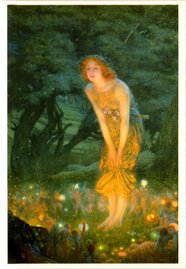I’ve been reading books by Bharati Mukherjee, Amitav Ghosh, Monica Ali, and Rohinton Mistry. It’s great because a lot of the best contemporary literature is being written by people from the South Asian Diaspora anyway. I have started watching a lot more Indian movies too (that’s mainly what’s available). Some of them have been more serious, like Deepa Mehta’s Water or the documentary Born into Brothels, set in Kolkata. I’ve even been getting episodes of the Amazing Race Asia from the Internet. It’s a different experience to watch or read these things now that I can pick out a few words in Bengali or even in Hindi and see faces, customs, and places that seem familiar.
Thursday, February 01, 2007
simulacrum
So, ever since I came back from Bangladesh, I have a fascination with South Asian culture. I realize how much I fell in love with the country, and I really long to go back. I keep noticing the way my attitudes have subtly shifted. A lot of the changes have been ones I like.
But I’ve also been watching Bollywood movies. They’re kind of addictive. It’s funny because they are very culturally enriching in some ways, yet I realize that many of them are just escapist fluff, except in a different language. And the way people act is sooo different than what I experienced this summer. People wear revealing clothes. They hold glamorous jobs. They perform almost superhuman feats at times. They pursue romance, love at first sight even, rather than having marriages arranged. There are acts of jealousy and selflessness on a grand scale, and spontaneous song and dance numbers on an even grander scale. A lot of the times I really can’t understand why they do what they do.
Here’s a clip from the movie Kal Ho Naa Ho, starring Shahrukh Khan and Preity Zinta, (one of my favourite songs, "Maahi Ve"):
Some of these differences might come down to the cultural and religious differences between Bangladesh and India, but I think a much bigger part of it is that the media simply is not reality. This fact comes home to me a lot more powerfully somehow when I realize it about a culture other than my own.
I always think of what someone said on one of our early days in Bangladesh. We were watching TV (one of only a couple of times we did while we were there) and there was a music video, probably from India on TV. It was a club scene and people were scantily clad and dancing as seductively as they would in any rap video on MuchMusic. We found it incredible that this would be shown on TV in a country where we had already learned so much about modesty, where we had to be very demure in our dress and behaviour at all times.
Our Bangladeshi friend "Chuckles" (we all had awesome nicknames) tried to explain to us, simply but profoundly: "The filmy world is not the same as the actual world." Very true, of course, although generally we think of good art (including films) as being better if they show us truth about the world, whether through verisimilitude or absurdism. Still, the most popular entertainment is usually not "high art", it’s as fun and fluffy, or as melodramatic and clicheed as some Bollywood movies are. What we love to watch is generally a version of the "real world" that has been airbrushed beyond recognition. But we forget that much of the time.
Even going to the US, I realize how many of my perceptions of America have been shaped by a glossy media version that doesn’t really exist, or by Canadian stereotypes that soothe our national inferiority complex.
I wonder what misconceptions people from other parts of the world might have about North American culture if their only exposure to it is watching music videos, TV shows, and Hollywood movies. (We’ve heard what the popularity of Baywatch has done to the reputations of American women.) We think of these things as being culture-shaping forces, and they are, but no matter how much they affect us, for better or for worse, there will be a divorce between society itself and the media that acts as kind of a Bizarro magic mirror for the society. If the media has a negative effect on the people who live in our culture everyday, and have a certain filter that tells them how far a given film is straying from the realities of North American society, what does it do to people who aren’t familiar with North American culture in the first place? I just wonder if watching each other’s media always promotes cross-cultural understanding as much as we think it does.
Subscribe to:
Post Comments (Atom)



2 comments:
"Will the new blogger = a new me?" Haha. That's awesome. I love bollywood. We should watch more.
Such a good post, and I loved that video. It had so much higher production value than any bollywood stereotype I've actually seen. After one watch, I can't the song out of my head either.
I agree with you too about Canadian inferiority complex, and perceiving things through our media. When I lived in the states for 2 1/2 years and would come back to Canada, it always amazed/shocked me to see and hear the different opinions people had about the States or how they viewed different things going on, and that to even point out anything GOOD the Bush administration has done, would get me to chop my head off. To get to live with one foot in each world and see two different outlooks really showed me a lot about how we're all sheltered by our cultures.
Good post.
Post a Comment